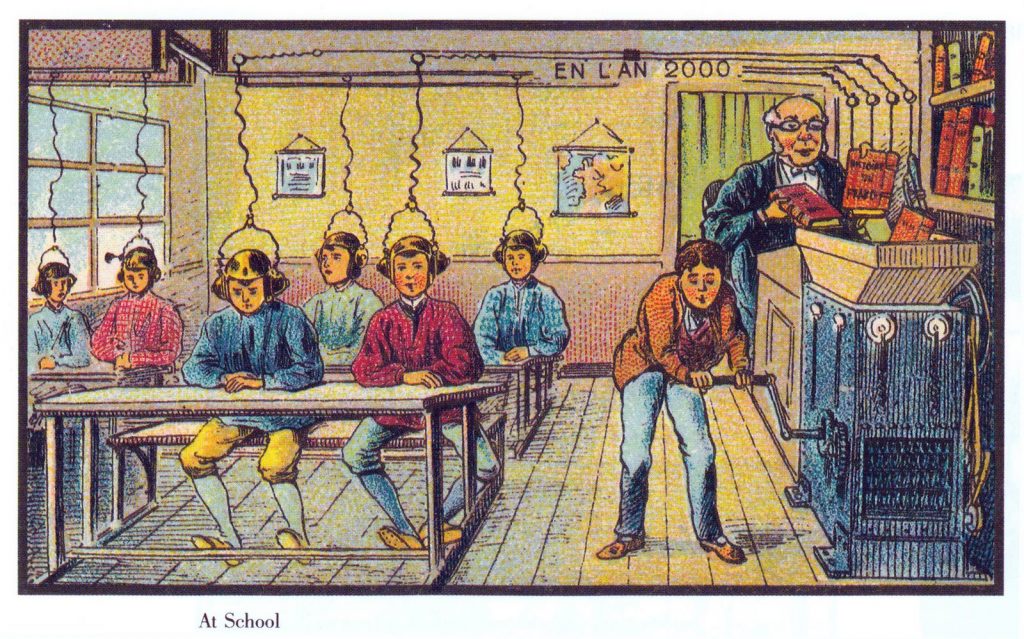During my scholarly life, I have learned many languages – English, German, French, Bulgarian, even Latin and Old Slavonic. The only language that I practiced outside the classroom was English. No wonder the only second language I can actually speak is English.
How is it that despite learning German, French, and Latin for three years at school, studying six hours a week for each language, I have never managed to become fluent in any of them? Was it because of my teachers? I don’t think so. My German teacher was from Bavaria, and my French teacher was very academic with a degree in French Grammar. Was it just me? Oh, no! I had the highest score in all the languages I’d ever learned. But still, I speak neither German nor French, not to mention Latin.
Learning
The reason why I never was able to speak those languages was that I learned them in the way I learned algebra, or physics, or any other school subject. School treats language classes the same way it treats anything else: there are some rules and concepts for students to be comprehended, and tests that reveal how well a student grasps those concepts. Language is a skill rather than a theoretical knowledge; thus it should be learned differently.
The summit of the “language for learning, not for speaking” approach for me was reached when I took my classes of Bulgarian. As a student of linguistics and Slavic languages, I had to learn one spoken Slavic language either of Western Slavic or Southern Slavic branch. I picked Bulgarian because it seemed easier to learn. The course of Bulgarian was designed for linguists. Its only goal was to show students what’s common between two Slavic languages, and where exactly Bulgarian grammar differs from the Russian grammar. It was a course of Bulgarian linguistics, but not the Bulgarian language. By the end of the year, I could read a simple text in Bulgarian and translate it (using a dictionary sometimes). I could also speak for fifteen minutes (in Russian) about the category of definiteness in Bulgarian and how it was lost in Russian. I couldn’t build a simple sentence in Bulgarian though because I had never practiced doing this in the language.
Eight years later, I met a Bulgarian woman in an American airport. She needed help. Her flight was overbooked, so she had to wait for another flight, however, her luggage was sent separately. The airport staff didn’t speak Bulgarian, and she didn’t speak English, so she was about to cry thinking that she had lost her luggage forever. Luckily I was there and I managed to explain to the lady that everything was fine with her luggage; moreover, she would be able to get a seat on the next flight to her city. She spoke a little Russian, so I could help. I couldn’t recall a single word in Bulgarian when I needed to.
Acquiring
English was another story. First, I learned English in school in a pretty traditional way: vocabulary lists, grammar rules, and unbearably boring texts to memorize. Then I started listening to the British and American rock music, and it changed everything. I was no longer limited to the classroom, and so my English started progressing rapidly. I overcame the language barrier when I finally realized that I can express my thoughts in this language.
The real breakthrough happened when I started working in a global company where English was the only spoken language for a highly diverse team of reporters. I stopped learning English, and I started using it as a means of communication. When I immigrated to Canada five years ago, my English improved even more. English surrounds me 24/7, and I started picking up those little things that I couldn’t polish while living in Russia. Today, I don’t spend a second learning English, however, I learn something new about the language every day. I find myself using some grammar forms that I was never taught, but that I picked naturally. “It just sounds right” is the sweetest feeling that can only come to a student when he or she stops learning and starts acquiring a target language.
Summary
Language is, on one hand, a combination of a grammar system and vocabulary; on the other hand, language is everything people say in the language. Learning is about focusing
on grammar. There is nothing wrong with this approach, but it will never lead you to fluency. You will never start speaking if you learn grammar and don’t learn how to speak language.
Language acquisition is all about communication and practical use of language. The modern guidelines for language teachers suggest a healthy balance of 80% the time to be spent speaking a target language and 20% focusing on grammar and details of word usage.
Acquisition takes a different approach. In terms of learning goals, “I want to practice x one hour a day” is a goal that wouldn’t work. Pretty soon you’ll find yourself busy with other – more urgent – things. “I want to read this book” is okay. “I want to make a self-presentation for a job interview” is even better. Think about what you want TO DO with your new language – and start doing it.
Image: This is how people in early XX-th century imagined schools of the future.

